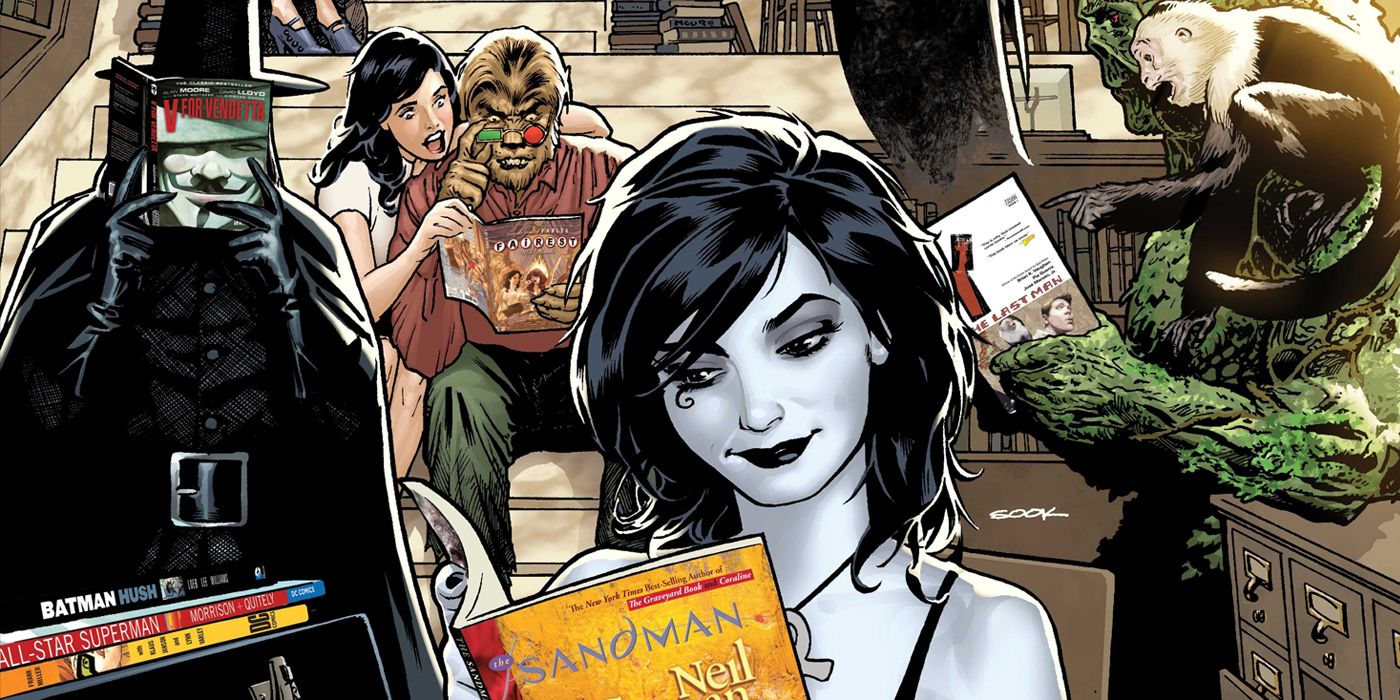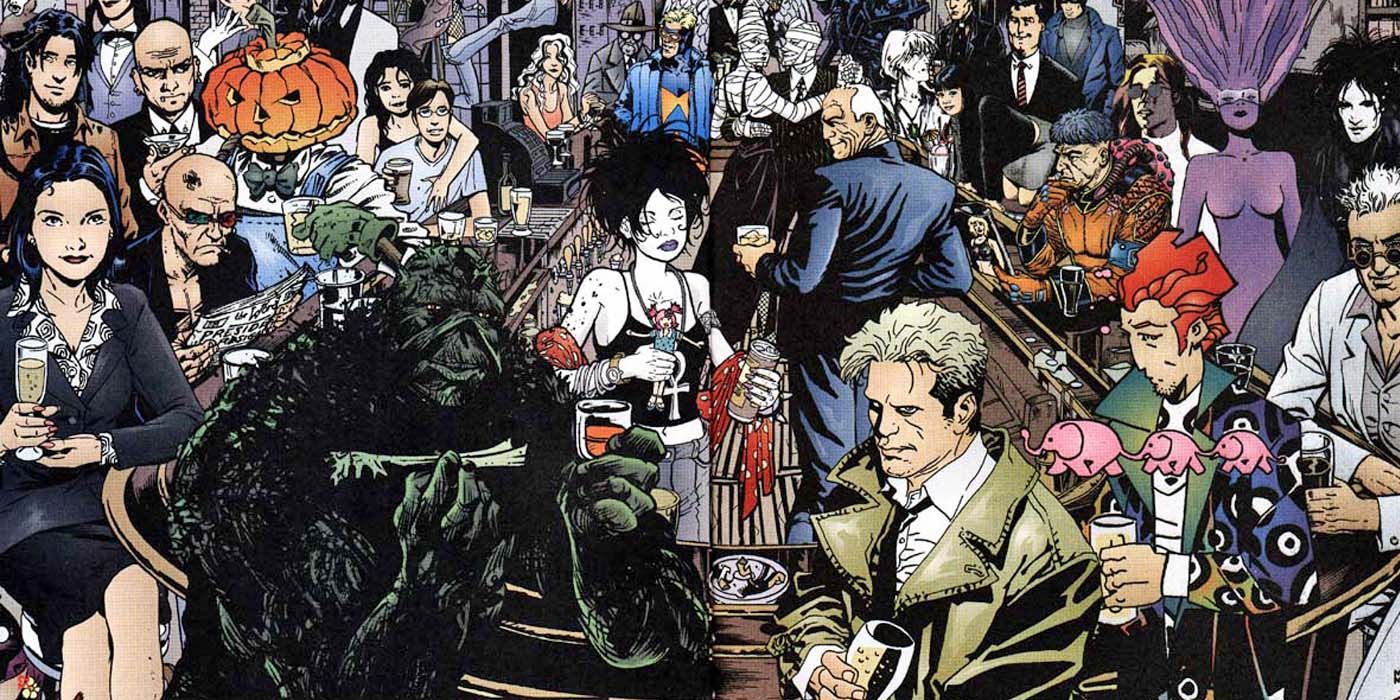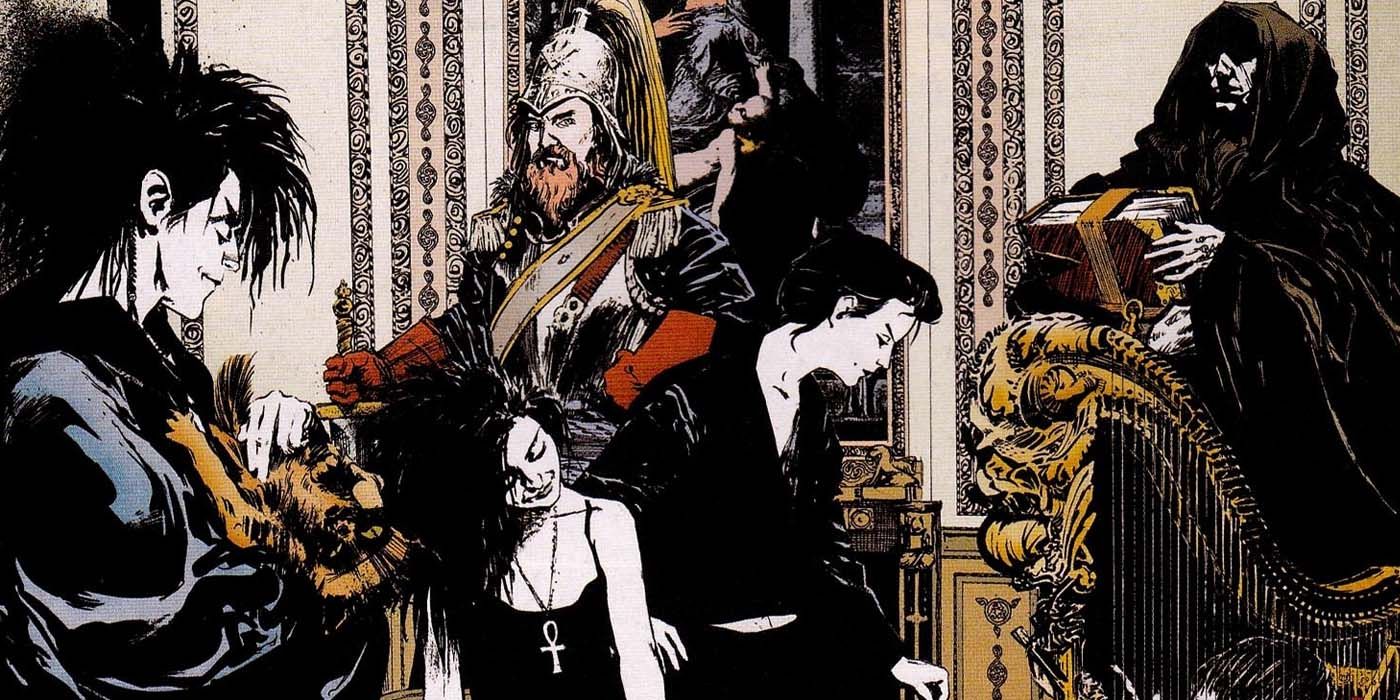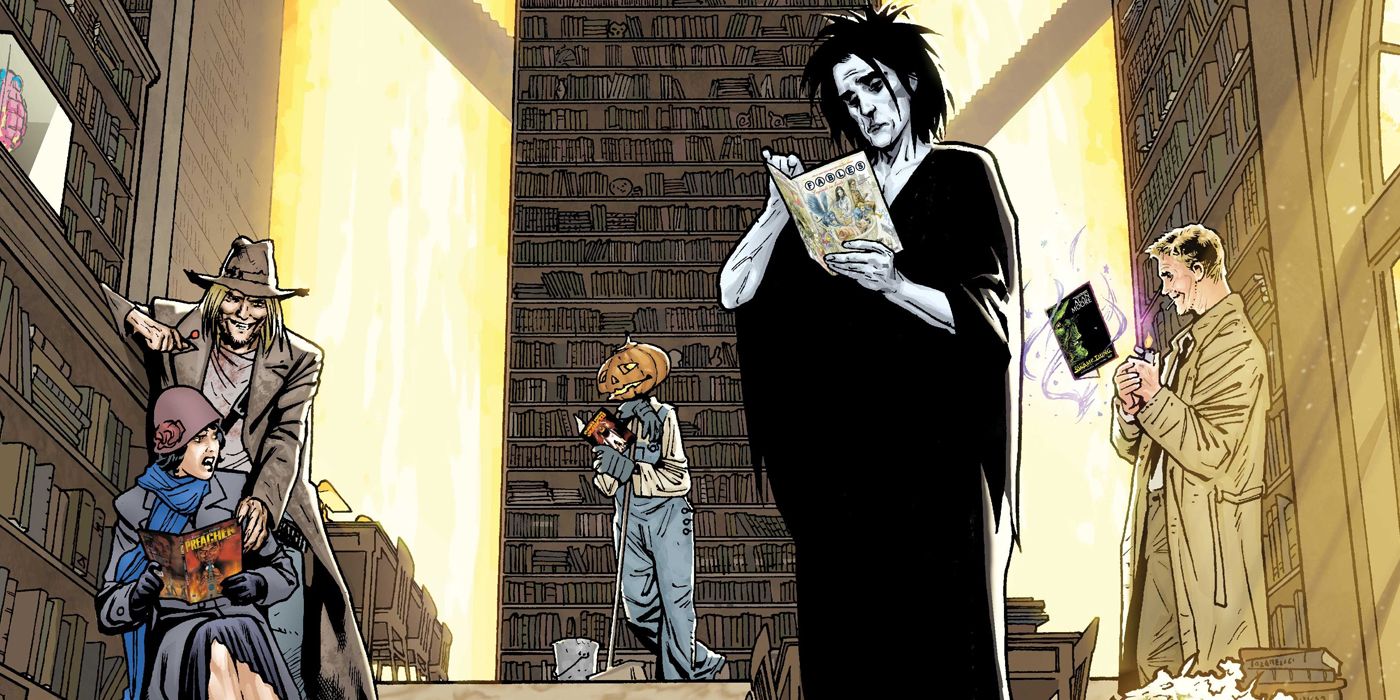With DC's announcement of the "sundowning" of its Vertigo imprint, one of the most distinctive voices in the history of mainstream comics will fade into memory at the end of the year.
As DC announced early Friday, the Vertigo brand will be retired as DC consolidates its publishing line under DC, the all-ages DC Kids and the mature readers DC Black Label banners. Although Vertigo's current ongoing titles will continue on under the DC Black Label banner, the retirement of the Vertigo brand marks the end of an era and one of the most influential imprints in comics history.
For the better part of three decades, Vertigo was the cutting edge of mainstream American comics. Although it faded from prominence in recent years, the "mature readers" imprint published medium-defining works, minted generations of superstar creators and pushed through new frontiers in ways that can still be felt around the comics industry today.
While comics like Dark Knight Returns and Watchmen proved that comics weren't just for kids any more, Vertigo showed what mainstream comics for adults could be.
While Vertigo officially launched in 1993, the imprint began as a line of comics edited by Karen Berger in the 1980s. Berger oversaw Alan Moore's seminal run on Saga of Swamp Thing with artists like Steve Bissette and Rick Veitch, which imbue the traditional monster comic with a self-described "sophisticated suspense" that made it much deeper, weirder and ultimately, more frightening.
Berger's books initially took lingering DC properties like The Sandman, Doom Patrol, Animal Man and Shade, the Changing Man and rebooted them as critically-acclaimed "mature readers" titles, often with young British creators like Neil Gaiman, Grant Morrison and Peter Milligan who pushed their work into bizarre, unexpected directions. Along with the Swamp Thing spinoff Hellblazer, which eventually made John Constantine Vertigo's flagship character, those series formed the core of Vertigo's initial lineup.
In sharp contrast to the bombastic, bloodless action comics targeted at kids and collectors in the early '90s, Vertigo thrived by making stories for older readers. With complex, though-provoking stories and provocative content that wouldn't be allowed in other comics, Vertigo gave readers a more adult-oriented alternative to superhero comics that could match their maturing tastes.
With Vertigo's signature success, The Sandman, writer Neil Gaiman and his artistic collaborators elevated mainstream comics to literary new heights that were recognized well outside of the comic book community.
When Gaiman was done telling his epic fantasy story, Vertigo ended The Sandman on his terms. Although the world of The Sandman continued to grow in spinoffs like Death, Lucifer Sandman Mystery Theatre and Vertigo's recent Sandman Universe, Gaiman set a precedent for ending a comic at its creative peak for artistic reasons.
Although several Vertigo titles were ostensibly based in some aspect of DC lore, most of the imprint's later, creator-owned titles mixed a wide variety of genres including horror, crime, fantasy and science fiction.
Garth Ennis and Steve Dillon's Preacher was an ultra-violent meditation on friendship and religion that was also a postmodern Western romance, while Warren Ellis and Darick Robertson's Transmetropolitan tackled social issues in an overwhelming sci-fi future through the lens of gonzo journalism.
Where Bill Willingham and Mark Buckingham's Fables cast familiar fairy tale heroes in a modern fantasy opus, Brian Azzarello and Ed Risso's 100 Bullets and Jason Aaron and R.M Guera's Scalped were gritty crime epics. Vertigo's most psychedelic, mind-bending titles, like writer Grant Morrison's The Invisibles, defy description altogether.
While no two Vertigo books were alike, they all shared an adventurous storytelling attitude that reflected their creators' unique visions.
Since the stars of most Vertigo titles were creators instead of characters, the imprint established creators as superstars. Before Scott Snyder became a definitive modern Batman writer, he and Rafael Albuquerque earned critical acclaim for American Vampire. Before he co-created Marvel's Runaways or Saga, Brian K. Vaughn gained fame on Y: the Last Man with Pia Guerra.
With such transgressive content and a wide variety of series, Vertigo titles reached an older, less male audience that anticipated today's comic-buying public. Thanks to an early marketing push by DC, Vertigo's comics never lived and died entirely inside of comic book shops, and Vertigo's graphic novels and collected editions helped comics make early inroads in bookstores as perennial best-sellers.
In between the independent comics boom of the '80s and the manga boom of the early '00s, Vertigo showed readers that comics didn't have to be about superheroes, and it gave young readers somewhere else to go when they wanted to put superhero comics down.
As DC Publisher Dan DiDio said in a statement announcing Vertigo's shuttering as DC consolidates its imprints, the kind of "edgier material" that Vertigo once published exclusively is far more common in all genres of comics.
While Vertigo might be gone, its influence will still be felt around comics for decades to come in other active comics publishers.
Using a Vertigo-like approach to reviving old properties, Marvel's mature readers line, MAX, introduced Jessica Jones and transformed Luke Cage from an also-ran into a modern icon. Even Archie Comics' Afterlife With Archie and Chilling Adventures of Sabrina feature the kind of boundary-pushing content that would've been far more at home at Vertigo in an earlier era.
Although Image Comics was built on the kind of bombastic action that Vertigo was a counter to, today's Image and other publishers thrive on the kind of mature, idiosyncratic comics that could've been released by Vertigo.
While John Constantine and Swamp Thing have returned to the DC Universe, the more DC-centric comics that would've once been published by Vertigo should still have a home at DC Black Label, where Vertigo's spirit lives on. In its announcement, DC also confirmed that the Sandman Universe titles would continue on without the Vertigo label.
Since Vertigo veterans are still some of comics' biggest creators and numerous Vertigo series are still being adapted as movies and shows, Vertigo won't fade from memory any time soon.




